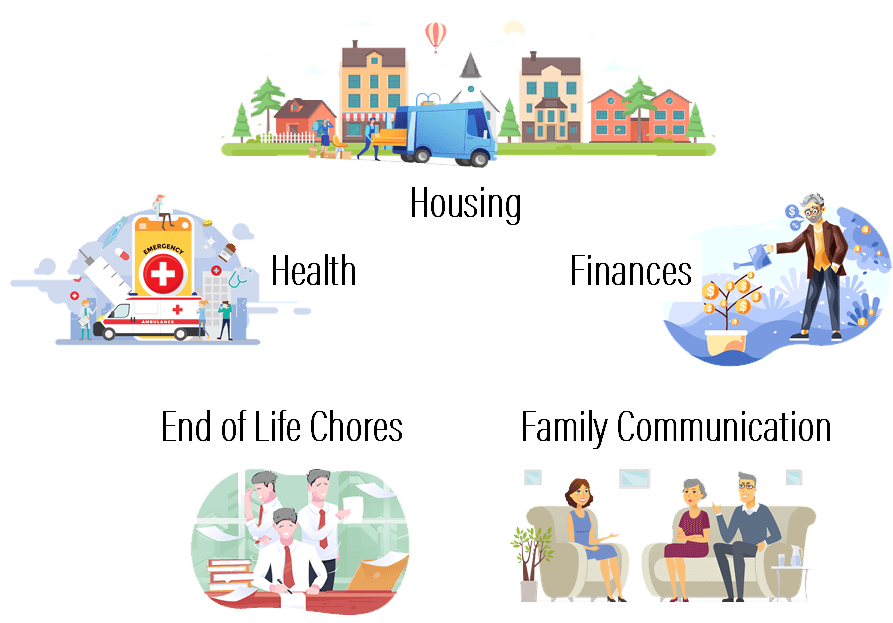Shingles, arthritis, substance abuse, oral health, osteoporosis, cataracts, glaucoma, hormonal imbalances, vitamin deficiencies, psychiatric illnesses, metabolic imbalances, and macular degeneration are all debilitating illnesses and diseases that affect seniors. These diseases and illnesses affect your mobility, your eyesight, and your ability to think clearly.
The ways diseases and illnesses affect your everyday life is what impacts seniors. The focus of medical doctors and research scientists is how people get the disease, treatment for the disease, and why treatments work or don’t work.
Seniors’ involvement with disease and chronic illness is back-end loaded. They get interested when they get the disease. Doctors and research scientists’ interest is front-loaded. They build careers in specialties by focussing early. Who are you?

Are You A Medical Expert Able To Address Chronic Illnesses?
Yes if you’re a Doctor or Research Scientist. No, if you’re not. But instinctually we want to become experts as soon as we get a chronic disease. At first thought, this seems to make sense. If I’m stuck with a disease or illness for what might be the rest of my life, learning something about it makes sense. But how much sense? Can I operate on myself? Can I prescribe medications for myself? If I convince a Doctor to prescribe medication for me that conventional thought says is dangerous and I die, who is liable? Me or the Doctor?
Our desire for medical expertise rarely stops in our own bodies. Ever have family members or friends tell you about their chronic illness? If you have experience with this disease (personally or via a friend or family member) do you find yourself suggesting doctors, treatments, or medications? Not only are we eager to claim medical expertise for our own illnesses, but most of us will also eagerly offer up recommendations for other’s diseases and illnesses. We can’t possibly know more than the patient’s doctors but we’re all in.
Why We Want To Be Medical Experts Capable of Addressing Termianl Illnesses?
Human motivation is complicated. But wanting to be a medical expert is not. First, we are social creatures who often have trouble making social connections. A shared serious disease or illness is an instant connection: it’s a serious issue in the lives of people affected and this that makes it intimate. In our heads, it matches up with running into a burning building and rescuing someone. Of course, it’s nothing like that. There is no risk, and in almost every case, no real expertise. At best, we’re sharing someone else’s expertise we’ve experienced or learned about.
What We Can Be Experts At?
Chronic diseases and illnesses affect mobility, hearing, eyesight, and cognitive capabilities. This is your hint of the expertise you can offer a senior confronting a serious disease or chronic illness. Can you walk, talk and think? Can you cook, clean, drive, and take notes? Can you sort medications and manage an appointment book? This is the real expertise you can bring to seniors and their families
If you’re not a medical professional, the best use of your time does not involve diagnosing and treating medical conditions. YOU NEED TO BECOME AN EXPERT IN HOW THE MEDICAL CONDITION OR ILLNESS IMPACTS YOUR EVERYDAY LIFE OR YOUR LOVED ONE. See our Section on Health.
Does the health condition keep you from shopping or cleaning? From doing your finances or driving? These are your responsibilities. When you can’t do them, you’ll need other people to do these things for you.
CarePlanIt’s Approach
CarePlanIt classifies every issue into one of five key areas: health, housing, finances, end-of-life chores & family communication. Once done, the CarePlanIt framework allows you to create an optimized process of addressing the challenge. You minimize your family’s time and costs while maximizing your chance at reaching an ideal solution. Although all five categories work together, it’s important to make an initial categorization.

Miscellaneous debilitating diseases and illnesses are a “Health” issue. These diseases can be life-altering and frightening for the patient, family, and caregivers. But CarePlanIt can help you better understand how to manage the impact on your everyday life. See our Best Practice Section.
We can help you navigate issues relating to chronic and terminal conditions. Review our Sections on Health, Housing, and Family Communication. Generally, CarePlanIt helps you optimize your finances, identify how your disease impacts your needs, and optimize your family’s participation.
Quick Ideas For Addressing Serious Chronic Illnesses
Family
Faith-Based Organizatons
Many faith-based organizations offer senior outreach programs for seniors
Investigate options in your neighborhood.
Community Organizations
Almost every community has one or more programs for seniors. Type into a search engine [ (name of your city) AND “senior services” ]. You should find services related to:
Government Programs
The government provides money for community-based senior programs. These are often the services offered in your community. They include:
Technology
There are hundreds of FREE and low-cost technology sevices that help you schedule, assign, and manage tasks. They include: